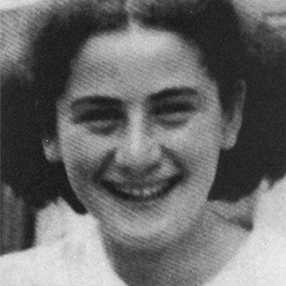Midmorning
translated from the German by Carlie Hoffman
Wind, dreamy notes, sings
its lullaby, gently touching the leaves.
I let myself be, seduced, immersed
in song like grass.
Air shivers
and cools my fevered face
wrapped in desire.
Clouds drift by, scatter white,
sun-stolen light.
The old acacia
leaves silence
a trembling tangle of leaves.
The scents of the earth rise, climb
and then fall back to me.
Vormittag
Der Wind singt sein Schlaflied
Mit träumendem Rauschen,
Die Blätter umschmeichelt er weich.
Ich laß‘ mich verfuhren, dem Liede zu lauschen
und fühl‘ mich den Gräsern gleich.
Es schauern die Lufte
und kühlen mein heißes
in Sehnsucht gehülltes Gesicht.
Die ziehenden Wolken verstreuen ihr weißes,
der Sonne gestohlenes Licht.
Die alte Akazie
Verrieselt ihr Schweigen
in zitterndem Blättergewirr.
Die Düfte der Erde erheben sich, steigen
und fallen dann wieder zu mir.
Copyright © 2024 by Carlie Hoffman. Originally published in Poem-a-Day on May 25, 2024, by the Academy of American Poets.
“‘Midmorning’ is a poem from Selma Meerbaum-Eisinger’s poetry collection Blütenlese, which I translated into English from German. Meerbaum-Eisinger was a Jewish, German-language poet from Bukovina, an eastern European territory. In December 1942, at the age of eighteen, she died of typhus while incarcerated in a Nazi SS forced-labor camp in Ukraine. Before her deportation, Meerbaum-Eisinger gave her poetry manuscript Blütenlese to a close friend, in hopes that she could deliver it to Meerbaum-Eisinger’s boyfriend. The handbound, handwritten manuscript contains fifty-seven poems, fifty-two originals, and five poems that she translated from other languages. The poems were written in Czernowitz (now, Chernivtsi) between May 1939 and December 1941; those dating from October 1941 were written while she was imprisoned in the ghetto. ‘Midmorning’ was written on January 8, 1941, nine months before her family’s forced relocation, as noted by Meerbaum-Eisinger on the manuscript page. The fact that the manuscript survived is astonishing, as there were several close calls wherein Blütenlese would have been lost forever.”
—Carlie Hoffman

